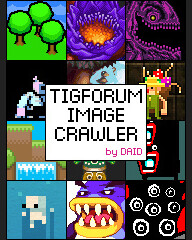Posts with ‘IndieFund’ Tag
IGS 2010: Indie Fund Explained
By: Brandon McCartin (BMcC)
On: March 26th, 2010

Photo courtesy of Rebekah Saltsman
The 2010 Independent Games Summit kicked off this year with a talk from Ron Carmel (of 2D Boy fame) called Indies and Publishers: Fixing a System that Never Worked, further clarifying the recently announced Indie Fund — a new investment/funding alternative created by successful indie developers for indie developers. The Fund has secretly been in action a while now, but is still not yet fully public, so this session bridged the gap somewhat between its reveal a few weeks ago and eventual open submissions.
I’ll summarize the talk (and the Q/A session) after the jump, but if you want all the details, plus high resolution versions of David Hellman‘s dope slides, head over to Brandon Boyer’s excellent article on Offworld (Boing Boing, whatever).
The Problem, as Ron put it, is mainstream publishers still treat indie development teams the same as they would any other. Old habits inherited from the retail days are still alive, not taking into account the streamlined, iterative way in which most indie games are made, nor their low budget. What this means is publishers wind up taking too big of a risk up front, and taking too much in return, effectively turning the independent developers into “tenant farmers.” Despite the fact that digital distribution means smaller games with zero manufacturing costs, and smaller teams that don’t need to make as much money, the system in place is largely unchanged from AAA game publishing. It’s generally inefficient and keeps the developer in the dark, but there isn’t a better alternative.
As an example, Ron described what he and Kyle went through trying to bring World of Goo to Games for Windows Live. The game got passed through lawyers, supervisors, engineers, QA teams, and various other managers for months and months before being approved. But when they brought the game to Steam (an admittedly more established service) the process took only a few days.
Ron defined publishing with an equation: Publishing = Funding + Distribution. But with the wide variety of distribution channels available to indies today, he concluded that traditional publishers aren’t needed at all. All that’s needed is funding. So the question became, “How do we do for publishing what Steam did for distribution?” The answer: Indie Fund.
He then went on to name some of the objectives of Indie Fund:
– A transparent, faster submission process
– A clear, publicly available deal
– A direct line of communication with the developer
– A flexible development setup for the developer
(no design docs, no milestones, just periodic builds with change lists)
– No IP ownership, no creative control over the developer
– No editorial work, putting trust in the developer
This concluded the talk. A brief Question and Answer session followed (which I will continue to heavily paraphrase):
Q: How big is the fund?
A: Size doesn’t matter. Finding the right games matters; the money will come.
Q: What about the role traditional publishers play in marketing?
A: It’s possible they help, but I haven’t seen conclusive evidence of them making a difference.
Q: When will the submission process open?
A: Currently it’s through word of mouth. We’re still ironing things out, waiting for results, etc.
Q: Are traditional publishers needed to reach all platforms?
A: We’re not handling that part of the business. But making one deal usually opens the door for others.
Q: Is Indie Fund similar to Y Combinator?
A: They seem to provide less funding and much earlier. Indie Fund will be more conservative at first, providing a significant amount of funding to more complete games.
Q: Will Indie Fund provide the developer with resources? Will you take royalties?
A: This isn’t our full time job. We won’t be doing these things. The developer should remain independent.
Indie Fund
By: Derek Yu
On: March 3rd, 2010

A group of successful indie developers have started Indie Fund, a funding source for independent developers. The 7 backers of the fund (Ron Carmel, Kyle Gabler, Jonathan Blow, Kellee Santiago, Nathan Vella, Matthew Wegner, and Aaron Isaksen) are investing in indie games and supporting their development. The primary goal is to provide a way for indies to create and sell games without having to compromise their vision or legal rights to publishers. Of course, you’d also be getting the advice of some of the community’s most experienced and successful creators.
Currently, the Fund is investing in a few undisclosed indie titles, which happened “through word of mouth within the indie community”. Eventually, though, there will be a way for developers to submit their games. You can find out more about Indie Fund in this Gamasutra Q&A with Ron Carmel of 2D Boy.

